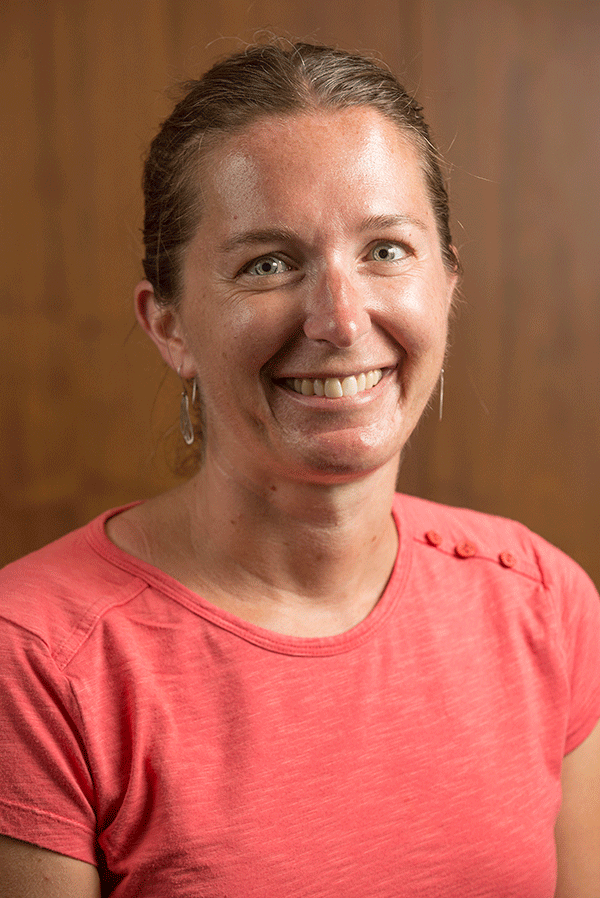$22M Grant for Biotech Research Includes Cal Poly Pomona

Cal Poly Pomona is part of a research group that was awarded a $22 million grant from the National Science Foundation (NSF) to establish a BioFoundry for Extreme and Exceptional Fungi, Archaea and Bacteria (ExFAB).
The research group includes UC Santa Barbara (UCSB), as lead institution, with Cal Poly Pomona (CPP) and UC Riverside (UCR) as collaborators. The team is the first joint UC/CSU team to focus on the study of extremophiles.
Extreme organisms are capable of living in conditions that would kill other life-forms, conditions such as intense cold, heat, pressure, dehydration, acidity/alkalinity and other chemical and physical extremes. Imagine extreme microbes that can eat plastic waste, PFAS forever chemicals, or help clean up oil spills. They exist, and ExFAB will further our understanding of them.
The grant funding will allow CPP to purchase a state-of-the-art DNA sequencer for genotyping and phenotyping of the microbes and a TapeStation, equipment that can check the quality of the DNA before it is loaded into the sequencer. This equipment will be the first of its type on campus.
Cultivation of the extreme microbes will be done at UCSB and UCR where automation and robotics will be used to handle cultures. When users of ExFAB need to sequence the extremophile DNA, that will be done at CPP, providing exceptional research opportunities to upper-level students and faculty.
The research team will focus on three areas: bioremediation, biosynthesis and rules of life from extreme examples. Rules of life refers to the knowledge that will be gained that can lead to advances in biotechnology.
 “As we learn more about these organisms, we are hopeful that we will be able to utilize products from the organisms in biotechnology or bioremediation,” said Jamie Snyder, an associate professor of biological sciences at CPP and a co-principal investigator (Co-PI) on the grant. “In addition, we may be able to genetically engineer these organisms to produce enzymes (or other useful products) for biotechnology.”
“As we learn more about these organisms, we are hopeful that we will be able to utilize products from the organisms in biotechnology or bioremediation,” said Jamie Snyder, an associate professor of biological sciences at CPP and a co-principal investigator (Co-PI) on the grant. “In addition, we may be able to genetically engineer these organisms to produce enzymes (or other useful products) for biotechnology.”
Snyder is an expert in thermophilic archaea and archaeal viruses. Her graduate and post-doctoral research involved looking for viruses in hydrothermal features in Yellowstone.
Snyder pointed out that Thermus aquaticus, a thermophilic bacteria found in Yellowstone in 1969, gave rise to the modern method of polymerase chain reaction (PCR). The discovery of that bacteria, and the thermostable enzyme derived from it, revolutionized biotechnology, allowing scientists to rapidly amplify DNA sequences through PCR.
Michelle O’Malley from UCSB is the principal investigator (PI), director of ExFAB and an expert in “wild microbe” enrichment and anaerobic microbial synthetic biology for engineering extreme microbes. The team also includes Co-PI David Valentine from UCSB, whose work will focus on marine microbes; Co-Director Ian Wheeldon from UCR, who is an expert in synthetic biology and engineering non-conventional microbes; and Jason Stajich from UCR, an expert in mycology who will develop and apply computational analysis of fungi genomes.
“A major component [of the ExFAB project] is to involve graduate students from across all of the CSUs and diversify the biotech workforce,” Snyder said. The educational program will be piloted at CPP. Students will be trained on the robotic equipment at UCR or UCSB as well as the high throughput DNA sequencer. Spending a summer at UCR or UCSB will provide intensive research experiences for students interested in pursuing a career in biotechnology or their Ph.D.
This collaboration will provide students with access to equipment that is typically only available in industry or at national laboratories, said Snyder. “Students will be able to learn more about the biotech industry, participate in workshops, and present at symposiums, preparing them to succeed in the STEM workforce.”

